Diane Nguyen is a character from the acclaimed animated series “BoJack Horseman”, a Netflix original. The series premiered in 2014 and wrapped up in 2020 after six successful seasons.
Known for its wit, humor, and startlingly poignant take on depression, self-destruction, and redemption, BoJack Horseman thrives on its well-fleshed characters, and Diane Nguyen is no exception.
The Epic of Diane Nguyen
Diane, voiced by Alison Brie, is a Vietnamese-American writer and the third main character in the series. Throughout the series, Diane’s character evolution shows a multi-dimensional, complex woman who’s much more than a simple supporting character or romantic interest.
Diane Nguyen’s narrative arc and personal evolution prove vital to the show’s overarching themes and storytelling.
Character Development

Diane starts as a ghostwriter for BoJack Horseman, the protagonist and washed-up star of the ‘90s sitcom “Horsin’ Around”. She’s employed to write his autobiography, and their relationship deepens throughout the series. This interaction between Diane and BoJack catalyzes the growth of both characters.
Diane is characterized by her idealism, intelligence, and dedication to ethical principles. However, she also grapples with deep-seated insecurities and depressive tendencies and struggles to find her place in the world. As the series progresses, she faces significant trials and tribulations.
This includes a messy divorce from Mr. Peanutbutter, launching her writing career, grappling with her complex feelings for BoJack, and navigating mental health issues. Her development offers one of the show’s most realistic portrayals of personal growth and self-improvement, even when it’s not linear or perfect.
Physical Appearance

Diane Nguyen is one of the human characters in the anthropomorphic world of “BoJack Horseman.” She is of Vietnamese descent, evident in her dark hair and eyes.
Diane is often seen in her signature outfit: a green jacket, white v-neck t-shirt, jeans, and red converse shoes, an ensemble that reflects her laid-back, practical personality. In the latter part of the series, Diane undergoes a significant visual transformation; she gains weight due to her antidepressants, a realistic portrayal rarely depicted in animated series.
She also chops off her long hair into a short, blue bob, symbolizing a shift in her life as she strives for change and self-acceptance. Diane’s appearance evolves throughout the show, making her one of the most visually dynamic characters in “BoJack Horseman.”
Personality
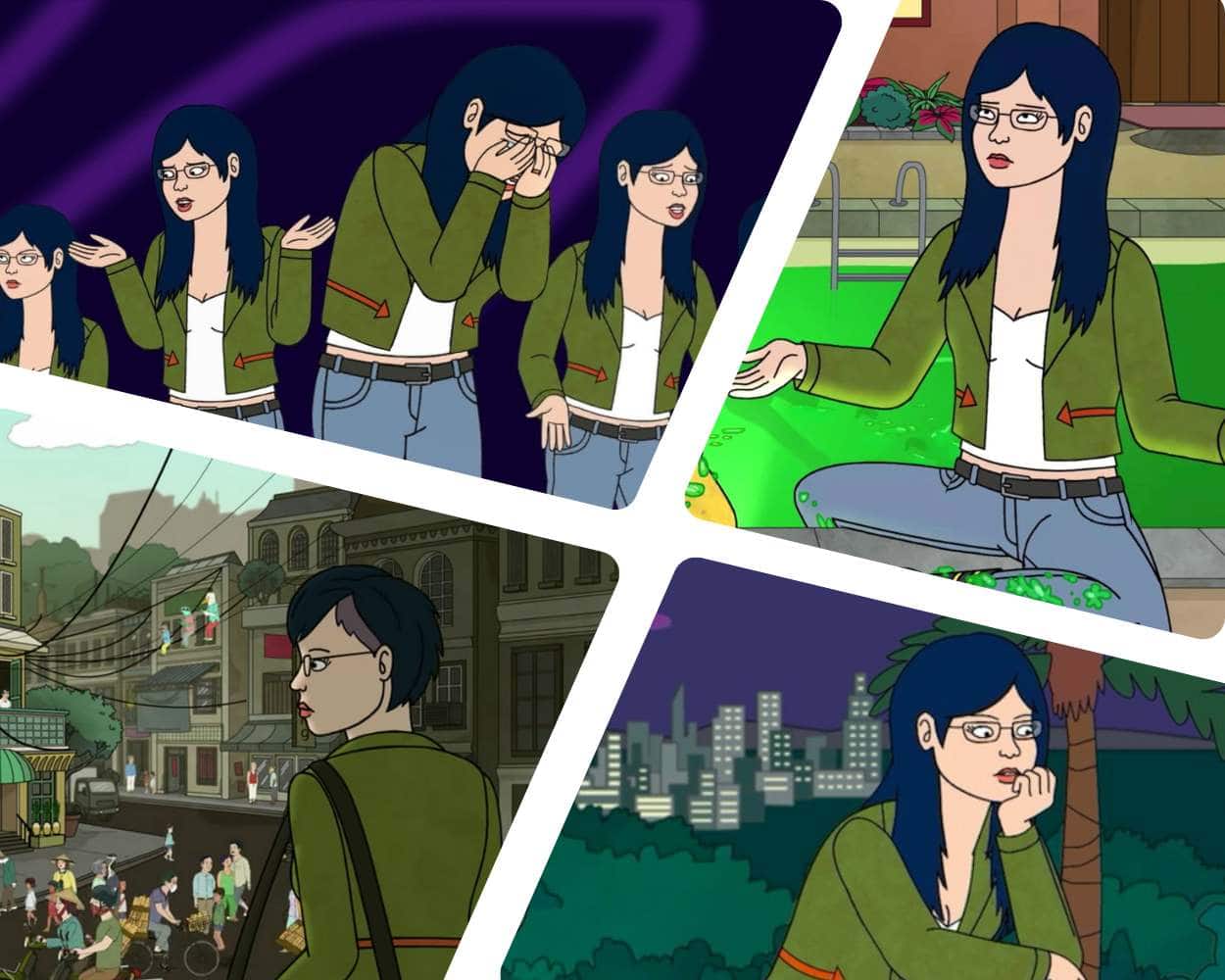
As a compassionate, intelligent, and nerdy feminist, Diane often plays the quiet observer in social situations but boldly stands up against injustice when necessary. She deeply empathizes with her friends, like Todd and BoJack, even amidst BoJack’s constant chaos.
Despite her compassion, Diane sometimes sees her methods as the only correct ones. A prominent example is her decision to keep the content of BoJack’s autobiography, “One Trick Pony,” a secret, convinced that her approach was best. Only when BoJack confronts her does she admit her mistake and apologize.
Her stubbornness often pits her against pragmatic solutions and creates conflicts, such as her numerous arguments with Mr. Peanutbutter. Despite this, her moral compass occasionally wavers, leading to bouts of hypocrisy. These characteristics stem from her difficult upbringing with negligent family members, a backstory that closely mirrors BoJack’s – a parallel she vehemently denies.
Relationships and Romantic Life
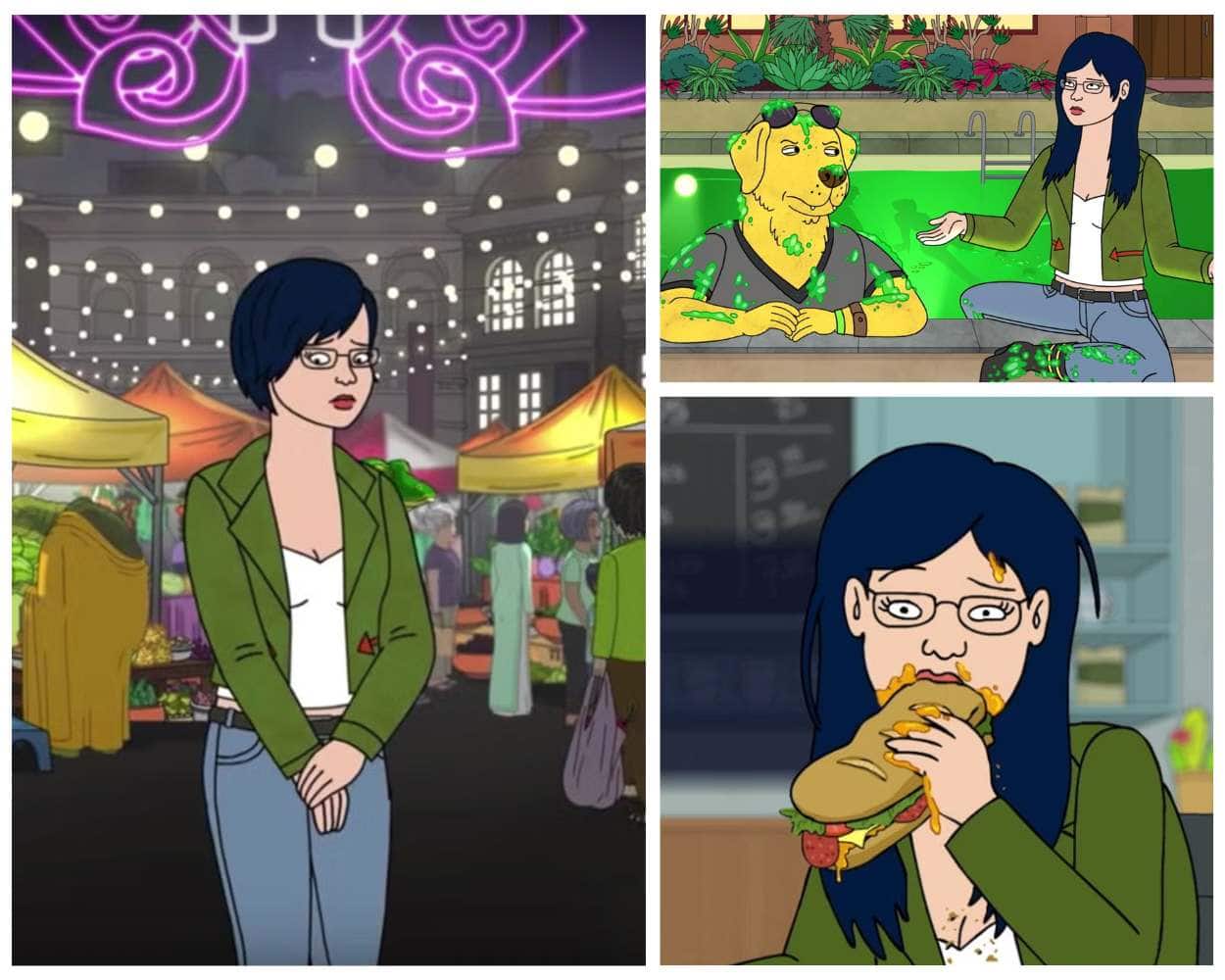
Diane’s romantic life, particularly her relationships with BoJack and Mr. Peanutbutter, further reveals her complexities. Her marriage to Mr. Peanutbutter, a cheerful and buoyant Labrador Retriever, contrasts with her more introspective and serious nature.
Their subsequent divorce provides a mature and nuanced take on the realities of relationships and personal growth. Meanwhile, Diane’s relationship with BoJack oscillates between friendship and unrequited romantic tension, serving as a cornerstone of the series.
Diane’s romantic relationships, successes, and failures add depth to her character, demonstrating that her identity is not defined by the men in her life but by her journey and growth.
Family Background and Childhood
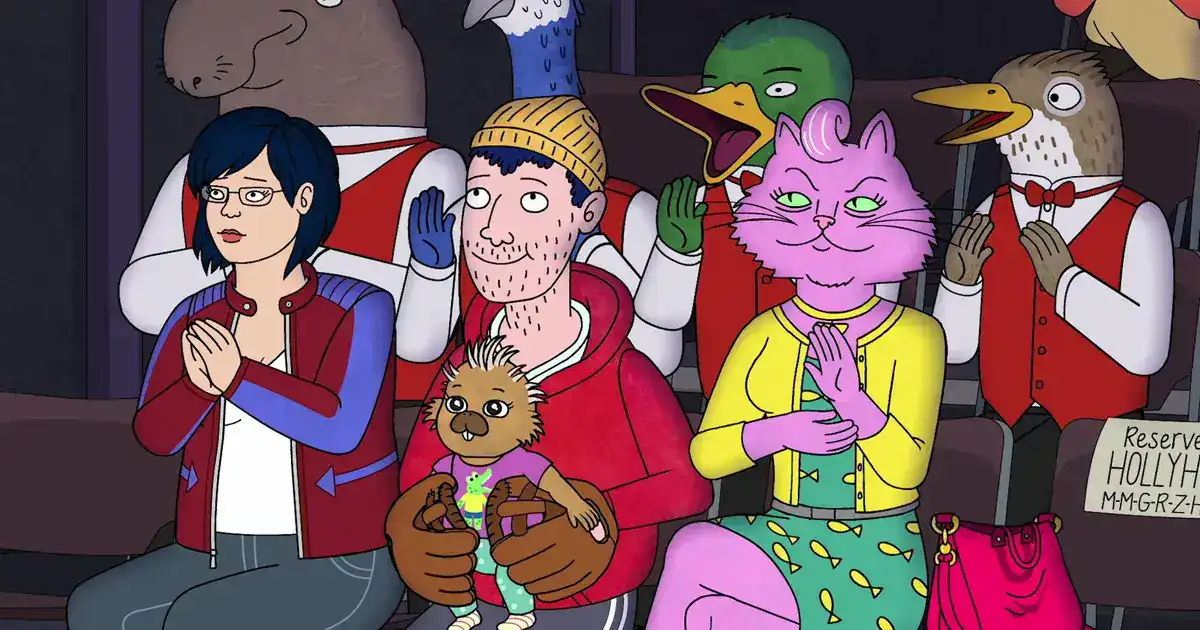
Diane’s family background and childhood experiences greatly influence her character development and worldview. The show illustrates Diane’s difficult upbringing in Boston with a dysfunctional family who belittled her aspirations and failed to support her emotionally.
This background is instrumental in shaping Diane’s self-esteem issues and her desire to seek validation through her work and relationships. Her later estrangement from her family underscores the lasting effects of such a challenging childhood.
Diane’s background is explored with sensitivity and nuance, giving viewers a profound understanding of the factors contributing to her current struggles, mental health issues, and her relentless quest for personal fulfillment.
Professional Life and Feminism
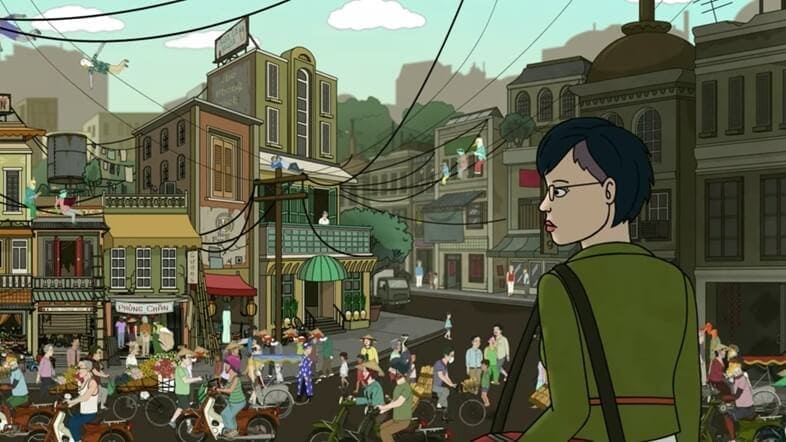
Diane’s professional life as a writer is integral to her identity and story arc. Early in the series, Diane is commissioned to ghostwrite BoJack’s memoir, setting the premise for their evolving relationship.
Diane’s commitment to showcasing the true, flawed persona of BoJack in the memoir reflects her desire for authenticity and truth. Later, she works on the TV show “Philbert,” a project which she hopes to use as a vehicle for critiquing toxic masculinity but finds it being twisted into its glorification instead.
Diane’s profession, and the highs and lows that accompany it, serve as a metaphor for the broader challenge of women seeking to create meaningful and influential work in a male-dominated world. Despite failure and compromise, her determination and persistence indicate the broader struggle many women face in their careers.
Mental Health Representation
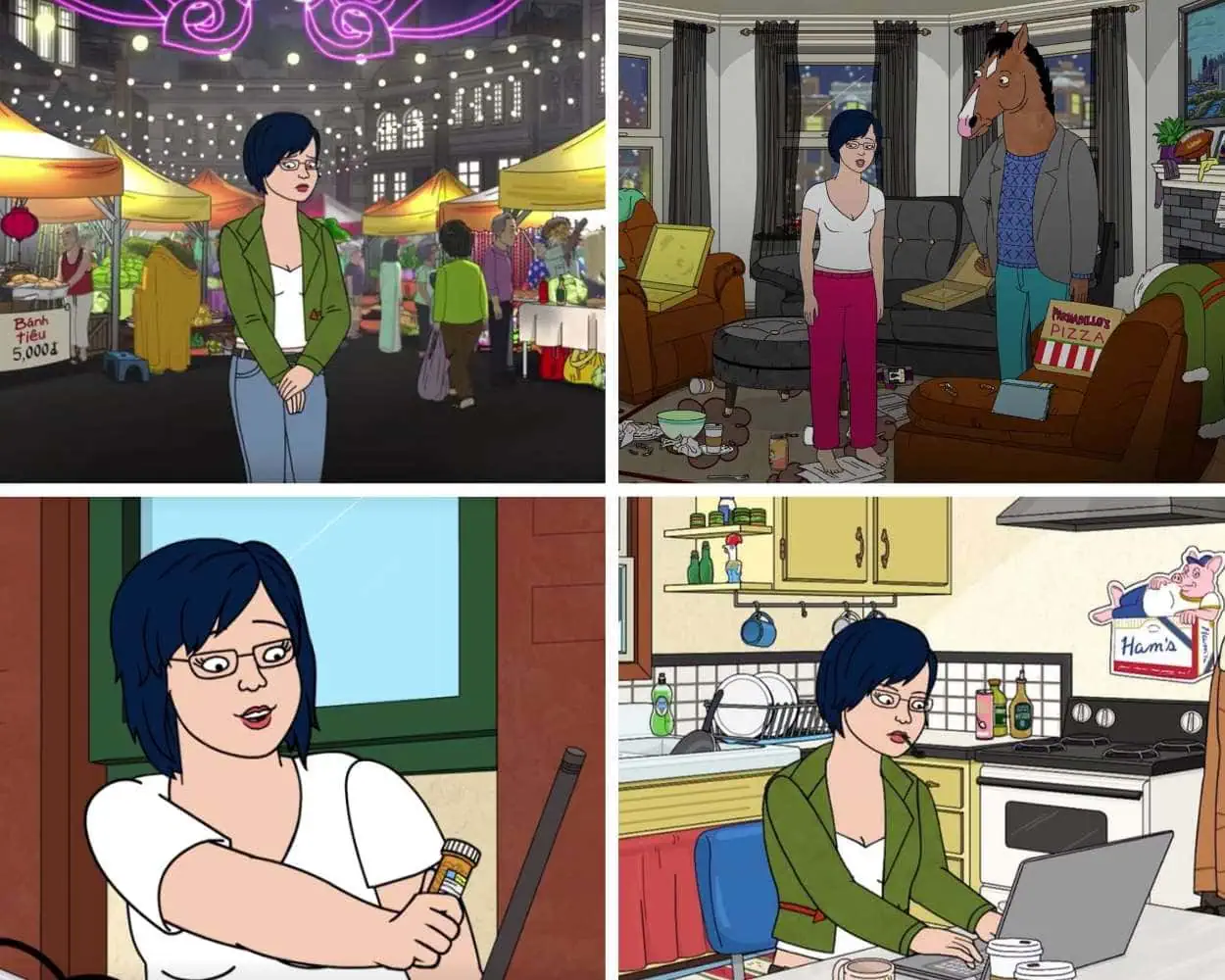
“BoJack Horseman” is highly praised for its authentic depiction of mental health, and Diane’s character contributes significantly to this. Throughout the series, she battles depression and anxiety, giving viewers a realistic portrayal of these common mental health issues.
It’s not until the final season that she receives a diagnosis of clinical depression and starts medication. Diane’s narrative arc helps destigmatize mental health discussion, showing her gradual acceptance of her diagnosis, understanding that her worth isn’t tied to her productivity, and her eventual path toward healing and growth.
These aspects of her character highlight the importance of mental health awareness and understanding, making Diane Nguyen a relatable and meaningful character to many viewers.
Social and Political Commentary

Diane’s character is often used as a vessel for the show’s social and political commentary. She’s a self-identified feminist who uses her platform as a writer to highlight important social issues.
This is evident in her move to the fictional war-torn Cordovia to write about the ongoing humanitarian crisis, her creation of “Philbert” to critique the normalization of harmful male behaviors and her passionate internet blogging. However, the show does not shy away from illustrating Diane’s moral and ethical dilemmas.
She often confronts the contradictions between her political beliefs and personal actions. This discrepancy makes Diane a compelling character and allows the show to explore the complexities of idealism, activism, and personal morality.
Diane Nguyen and Princess Carolyn
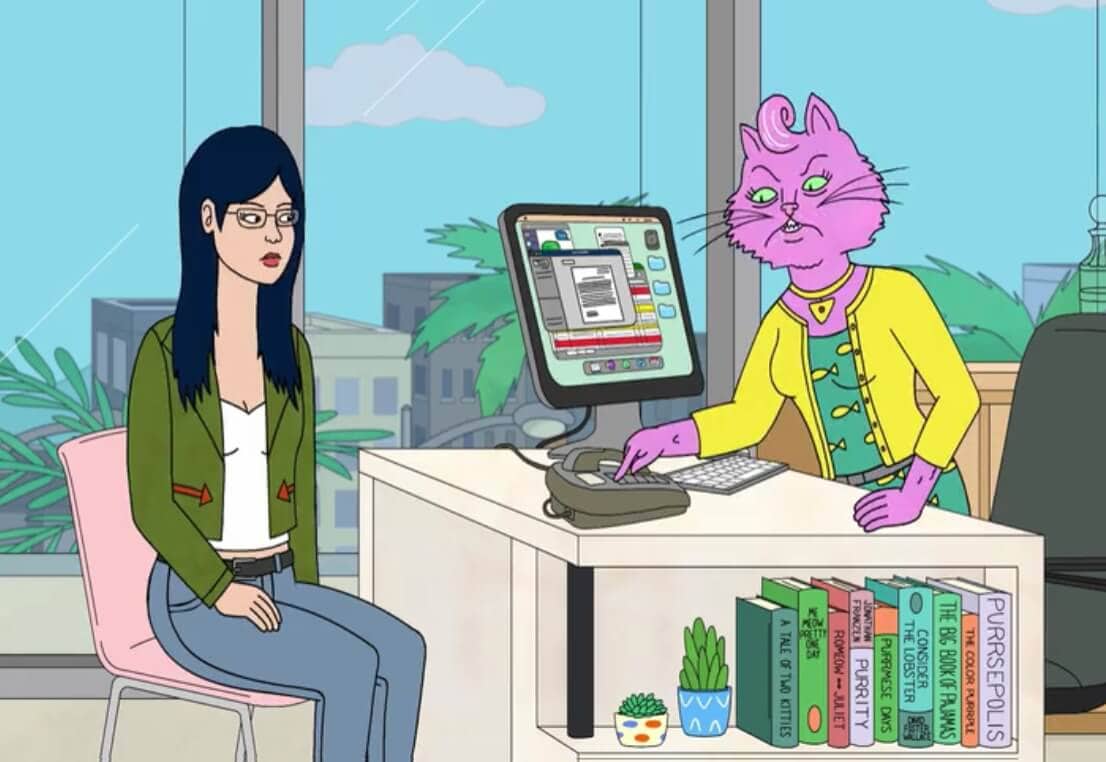
The relationship between Diane Nguyen and Princess Carolyn, another central character in “BoJack Horseman,” is intricate and layered, offering a fascinating portrayal of female friendship in the animated series.
Princess Carolyn, a pink Persian cat voiced by Amy Sedaris, is a determined and tenacious talent agent turned manager who often cleans up after her clients, particularly BoJack. Diane and Princess Carolyn share a complicated friendship, marked by camaraderie and competition, empathy and misunderstanding, support and conflict.
Their professional lives often intersect, leading to collaborative and contentious situations. Princess Carolyn is the one who hires Diane to ghostwrite BoJack’s autobiography, kicking off a series of events that significantly impact all their lives.
Aliases
- Blarn (while working at Starbucks)
- Deedee (family nickname)
- Cryanne (nickname given by her brothers)
- Asian Daria (Sarah Lynn)
- Diabolical Thin Mint (Mr. Peanutbutter)
- Glasses (Sextina Aquafina)
- Princess Diana/Diana Princess of Wales (Dr. Indira In “INT. SUB”)
- Princess Diane (by Artie Nguyen in “Live Fast, Diane Nguyen”)
- Diana (Mr.Peanutbutter’s mistake in “The BoJack Horseman Show”)
Family
- Pa Nguyen (father; deceased)
- Ma Nguyen (mother)
- Artie Nguyen (older brother)
- Marty Nguyen (older brother)
- Tommy Nguyen (older brother)
- Gary Nguyen (adoptive older brother)
- Guy (husband)
- Sonny (step-son)
- Mr. Peanutbutter (ex-husband)
- Captain Peanutbutter (ex-brother-in-law)
- Unnamed Ex-Nephews
The Complete Diane Nguyen Timeline
Why does Diane Nguyen’s appearance change in the final season of BoJack Horseman?
Diane’s appearance changes in the final season due to her move to Chicago, her new relationship, and her decision to start taking antidepressants, which cause weight gain.
Her new look, including her blue hair, represents a physical manifestation of her personal growth and the changes in her life.
Why do Diane and Mr. Peanutbutter get divorced?
Diane and Mr. Peanutbutter divorce due to their fundamental personality differences and inability to make each other happy long-term. Despite their love for each other, they struggle with incompatible views on life, happiness, and success, leading to the dissolution of their marriage.
What are some of the social issues Diane Nguyen tackles in the show?
Diane tackles several social issues throughout the series, including sexism, systemic misogyny, and gun control. As a character, she serves as a voice for critique and change within Hollywood, highlighting the need for societal reform and the struggle to effect change within a system that often resists it.
How does Diane’s upbringing impact her character?
Diane’s challenging upbringing, including a neglectful and unsupportive family, contributes significantly to her character. It shapes her self-esteem issues, relentless quest for validation, and complicated relationships with others. Despite the difficulties, it also fuels her drive to seek a better life and expose and challenge societal injustices.